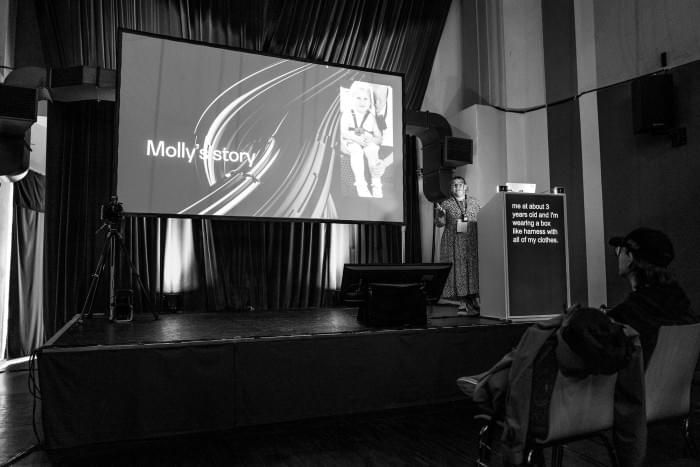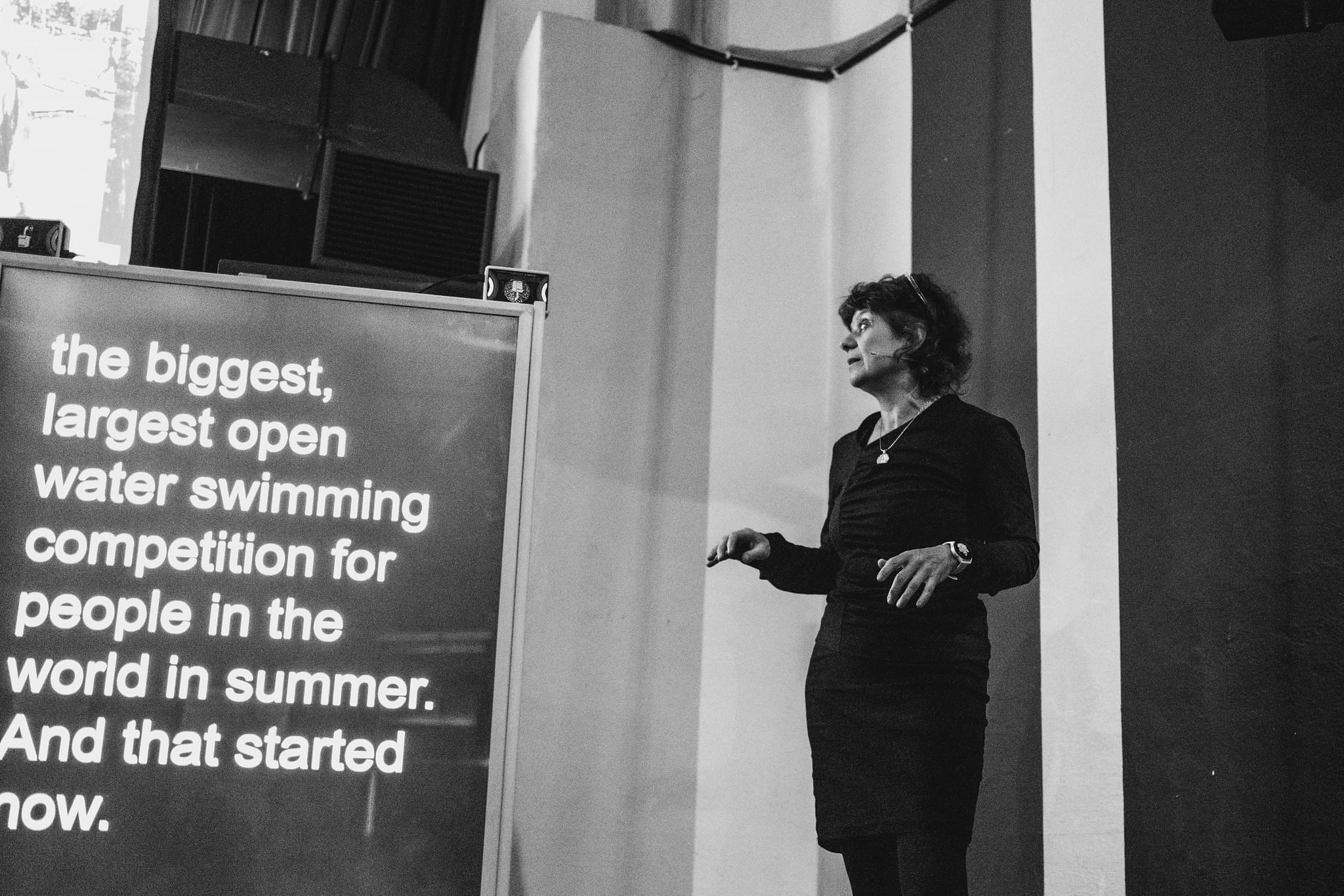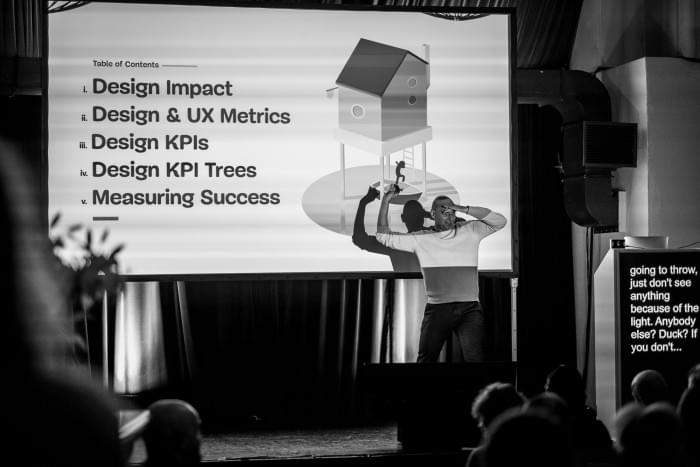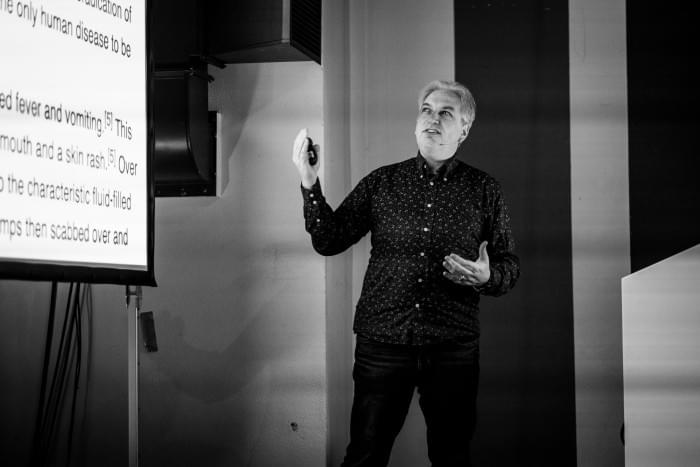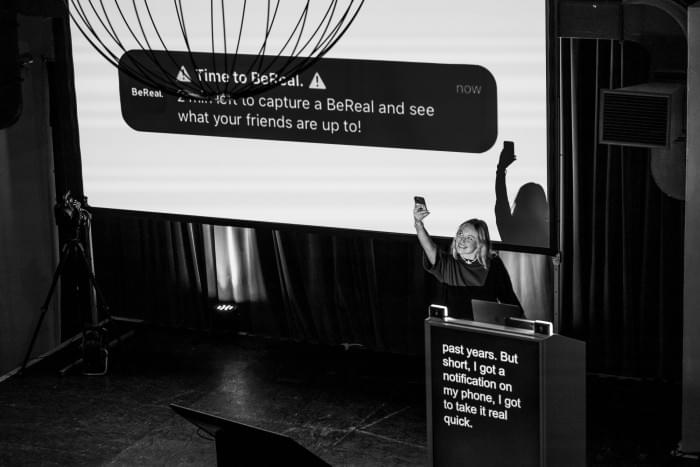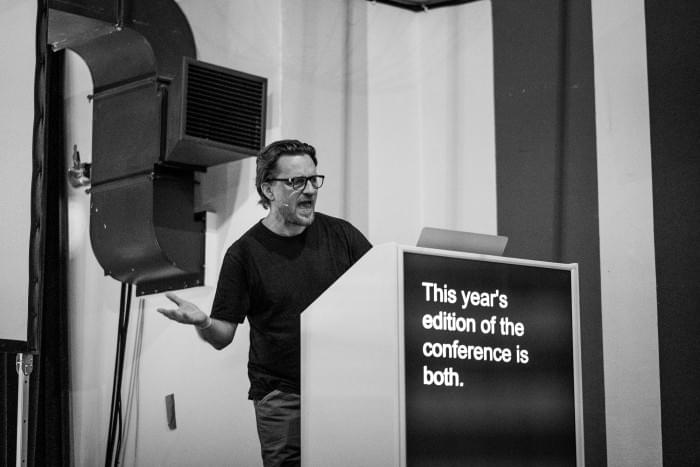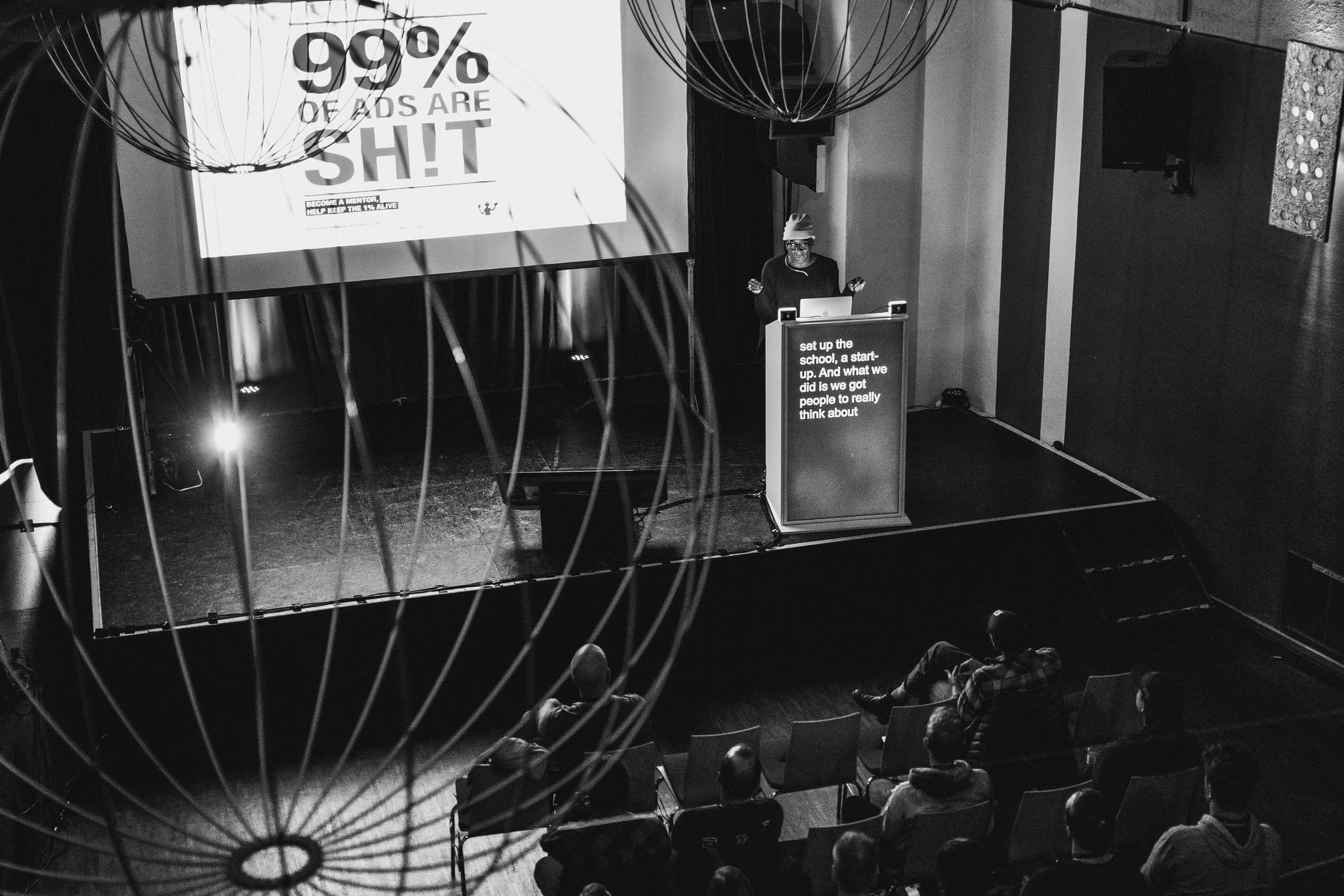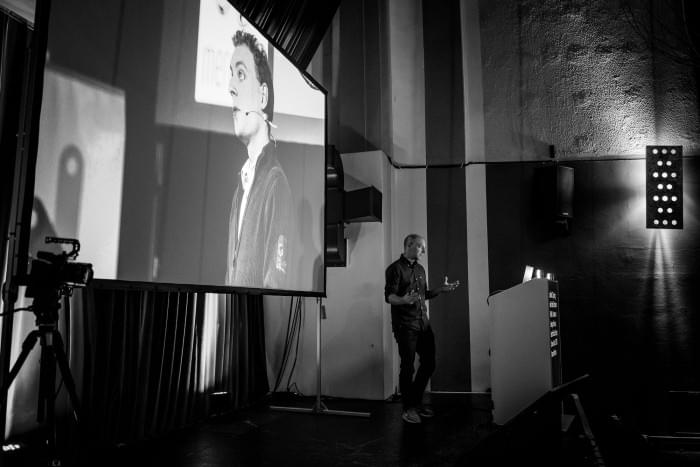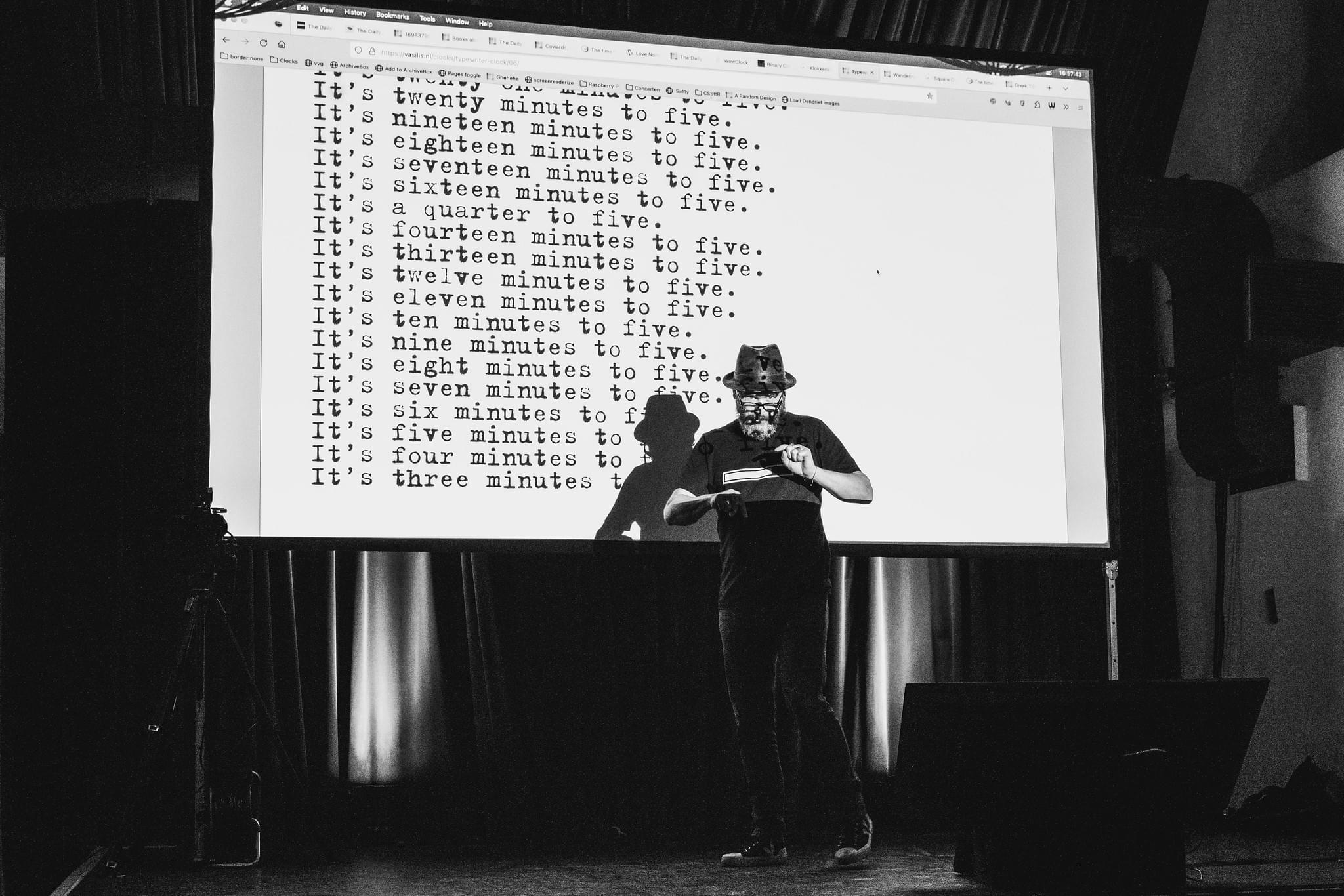10 years
border:none
20 23
– , 2023
Orpheum / Nuremberg / Germany
Fundraising
€ 1,350 raised out of € 3,000 goal
45 % financed 18 donations
Did you love border:none 2023? We did for sure!
We are a little proud that we managed to organise border:none 2023 for only around € 12,000 — and we are happy to share this with you transparently. It's great proof that even a 2-day event with such a high-calibre line-up in a beautiful location doesn't have to cost a fortune. At the same time, our income was noticeably lower than our expenses, and so we are around € 3,000 short of a break-even point.
We are aware that we have already received generous support from our sponsors and ticket buyers. If you would like to further support the idea of border:none, we would be incredibly grateful if you could contribute to our funding.
Every contribution counts, big or small. As a thank you, we will provide each person that donated a minimum of € 50 and attended border:none with a streaming pass for the upcoming beyond tellerrand conference in Düsseldorf.
Take your chance to be there virtually and support two unique events with one contribution: border:none & beyond tellerrand.
You can support us via Tito. Payment methods are credit card or invoice. In case the form below is not visible or not working for you, please use this link to contribute to our fundraising.
Recap 2023
That was border:none 2023! Many thanks to everyone who accompanied us at this fantastic event: Sponsors, speakers, visitors, our organisation team and the Orpheum.
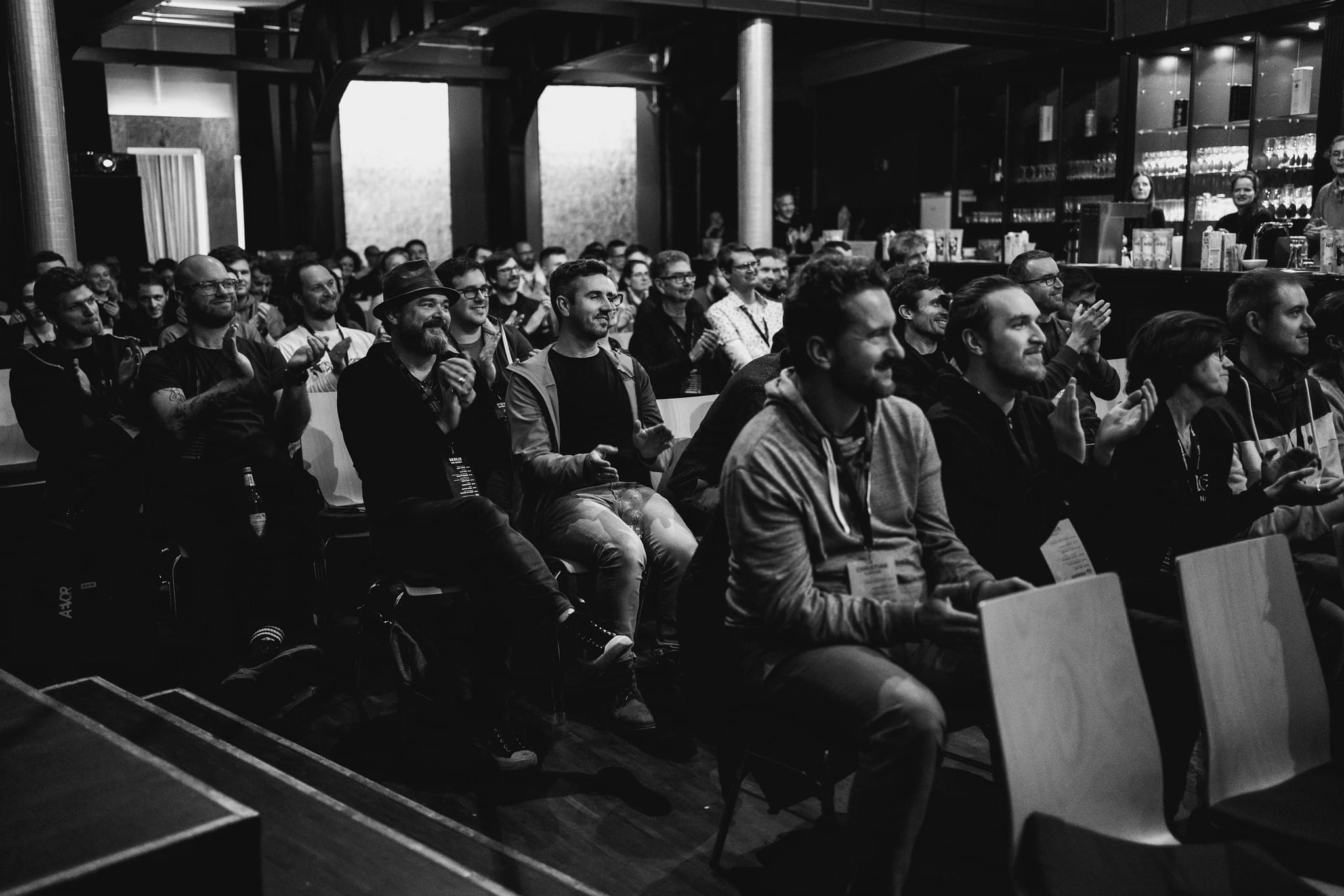
© Jolanta Dworczyk
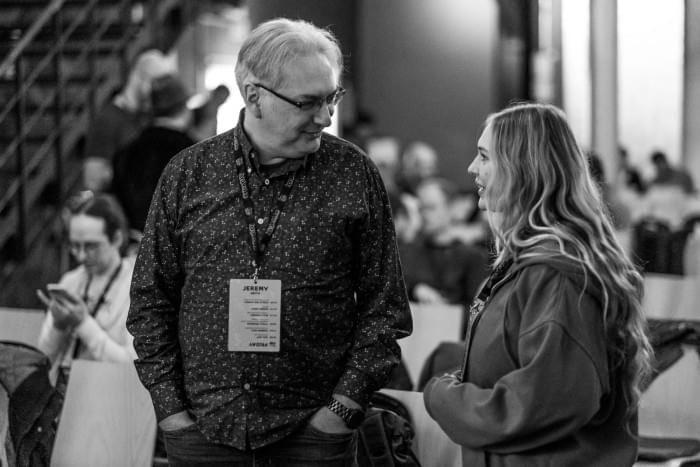
© Florian Ziegler
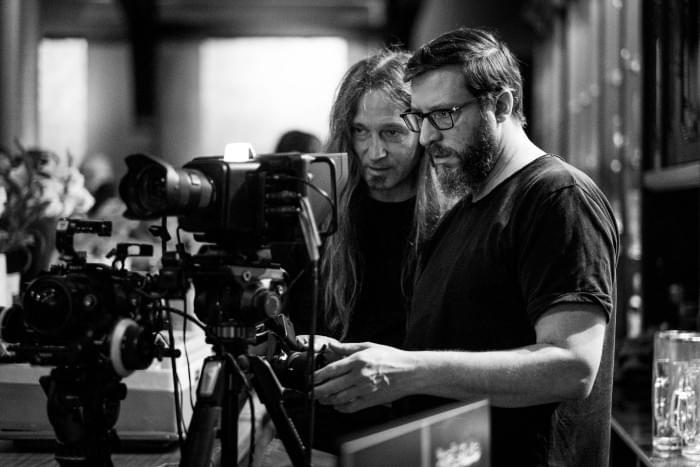
© Florian Ziegler
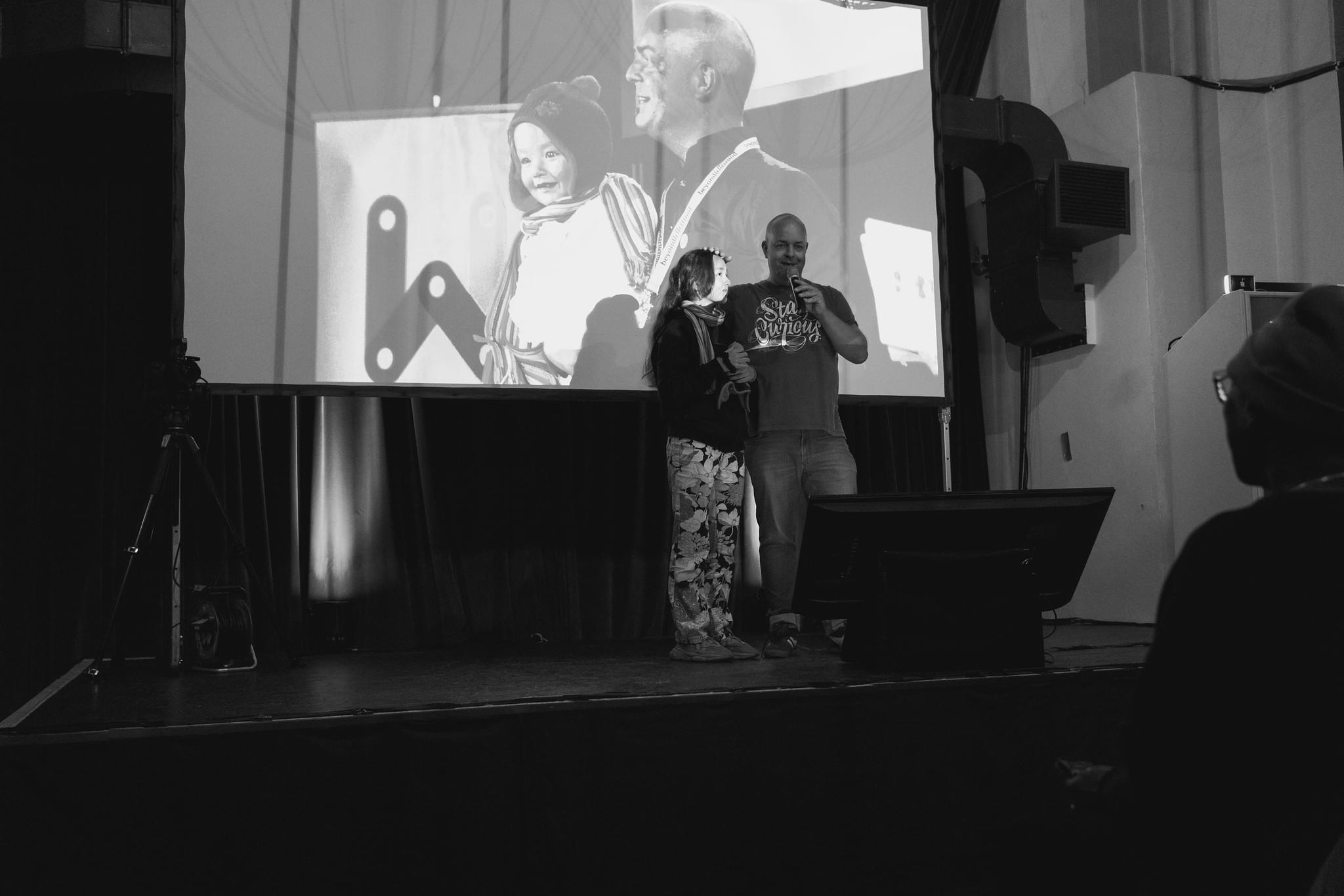
© Jolanta Dworczyk
- Florian Ziegler and Jolanta Dworczyk captured some lovely and amusing moments with their camera lenses during the two days.
- Vasilis van Gemert added to his talk a lot of funny and playful project examples from him and his students, all of which he has linked in his blog post "Let's reinvent the wheel".
- Jeremy Keith summarised the essence of his experiences at border:none in a blog post, which is well worth reading. He has also published the transcript of his talk "Of Time And The Web".
- Tom Arnold aka "Webrocker", who had also attended border:none 2013, talks in his blog post about
"the sense of 'Klassenfahrt'"
he (and surely a lot more of the visitors) experienced at the event. - Last but not least Matthias Ott summarizes in his blog post "No Borders" the wonderful message he received from the 10 year anniversary of border:none:
Border:none 2023 demonstrated impressively that what truly matters in the end isn’t how good you are at running in the hamster wheel. In hindsight, the things you will remember, the things you will be most proud of, are the things that brought you a sense of purpose, happiness, and belonging, as well as the moments when you took a risk or stood up for something.
— No Borders
About border:none
border:none is a small non-profit conference spinning out of the web community, dedicated to finding modern ways of thinking, designing and creating desirable futures.
We started border:none as a one-off project in 2013 and in 2023, after exactly 10 years, we returned to the origins: the same place, the same time, the same price and the same speakers as back then. The question we asked ourselves: How has the world around us changed in the last 10 years? Where are we today?
While much was the same as in 2013, there were also a few big changes: This time there was a second conference day and twice as many speakers — with a special focus on diversity.
Our Speakers
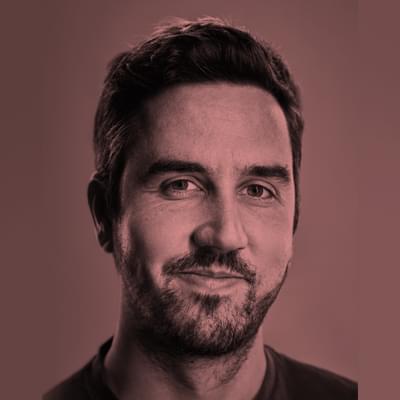
Bastian Allgeier
The meaning of life … for a web developer
Bastian studied communication design in Mannheim and has been working as a freelancer between design and programming for over 17 years. Next to (still!) being known for creating Zootool around 2008 he is known for developing the content management system Kirby. It wasn't always the case, that this was his sole project, but started as a side project while still working on customer projects. But what once started as a hobby or side project has now grown into a full-time job with a hand full of employees, selling worldwide and used by companies such as Daimler AG, Mozilla, the New York Times, many well-known names in the Web industry and universities such as Stanford or Harvard, just to mention a few.
"The meaning of life … for a web developer"
The excitement for our medium is long gone. The web has become a mundane commodity. It didn't bring a new form of enlightenment, but disinformation and cat memes. What's still in it for us as web developers? Are we still needed at all? Will we be replaced by AI soon? Should we start a new life as farmers instead?
- On the web https://bastianallgeier.com
- On Mastodon @bastianallgeier@mastodon.social
- Coverage Video on TouTube
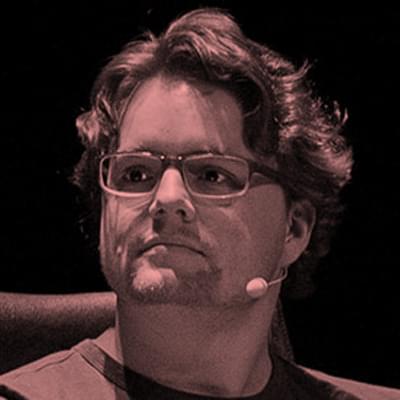
Tobias Baldauf
[mɑːkt]
Tobias is a web performance evangelist and #perfmatters engineer at Trivago. He creates innovative web performance tools, new image optimization algorithms and speaks at conferences. He's a dedicated dad, tries to be a mindful veggy and loves making music.
"[mɑːkt]"
What do you think about your topic 10 years later? - this inconspicuous prompt by Joschi & Marc led me to realize: I don't care about it anymore.
Intrigued by this realization, I reflected on what brought me to this stage at the Orpheum 10 years ago. I queried myself using the Five Whys technique many times and came to a realization. My being on this stage was a consequence of processes that cascaded through generations.
As I learned to love the cascade early in developer life, I traced it back to its :root element. What followed was a lot of dusting-off of family photo albums & an unreasonable amount of machine-based image recoloring.
In this once-in-my-lifetime session, retrace with me how decisions made in 1913 [mɑːkt] me to be on this stage in 2013. In the end, you may realize what brings you here today, too.- On the web https://who.tobias.is
- On Mastodon @tbaldauf@social.tchncs.de
- On X (formerly Twitter) @tbaldauf
- Coverage Video on TouTube

Molly Barnes
Thinking Inclusion with Molly
Molly is an innovator and accessibility consultant, specialising in assistive technology for people with sensory impairments. Molly has Usher Syndrome, a rare form of deafblindness, and knows first-hand how transformative assistive technologies can be. She raises awareness of accessible design, accessibility standards and technology including computers and wearables. Molly explains: “My passion lies in inclusion and the many possibilities assistive tech can provide in breaking down barriers because nobody knows inclusion like those who’ve been excluded.”
"Thinking Inclusion with Molly"
Meet Molly, a deafblind speaker and accessibility consultant dedicated to raising awareness about diverse accessibility needs. She uses her personal experiences to help professionals in design and development understand the importance of inclusion.
Passionate about user-centered design and expanding organizations' understanding of diverse user requirements, Molly strives to improve services and end-user experiences, attracting a wider audience to various opportunities and services.
Molly's insights from using assistive technology encourage collaboration to create inclusive experiences.
Whether you're designing a website, recruiting, constructing an environment, or offering a service, every organization must prioritize inclusion in their daily operations. The more inclusive and accessible you are, the broader your user base becomes, leading to better outcomes. Why not take the lead and become the next example of inclusivity?- On the web https://www.mollywatt.com
- On X (formerly Twitter) @MollyWattTalks
- Coverage Video on TouTube
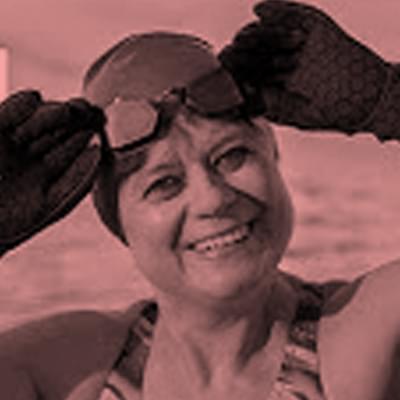
Dagmar Dahl
'It's cold, but great afterwards!' - Cold water swimming: a crazy, risky trend or healthy lifestyle?
Dagmar Dahl is an associate professor at NORD University, Norway. With a ph.d. from the Norwegian School of Sports, her main field of research is now dealing with philosophical, pedagogical, and sociological aspects of swimming. She is teaching swimming & lifesaving in the teacher education program as well as the subjects “Adventure Knowledge” and “Extreme Environments”. Dagmar is an experienced Ice-Swimmer, who founded Northern Norway’s largest Ice-Bathing group “Bodø Penguins”. She is also a member of the Open Water Committee and Open Water Head Instructor for the OW trainer education in the Norwegian Swimming Federation. In 2020 she became the first Norwegian Swimmer to cross the Saltstraumen Maelstrom.
"'It's cold, but great afterwards!' - Cold water swimming: a crazy, risky trend or healthy lifestyle?"
The practice of cold-water swimming in natural environments is an increasingly popular activity in Northern Europe. Especially during the lockdown period, several people have discovered swimming in nature even at very low water temperatures. Apparently, for these swimmers, the positive aspects outweigh the dangers of hypothermia or other hazards from the ocean. Without a doubt: the water is cold, very cold. And it's not any cosier out on land in autumn and winter either. Why are people nevertheless enthusiastic about being in the sea or lake, often several times a week?
- On the web https://www.nord.no/en/about/employees/dagmar-gerda-martha-dahl
- On Instagram @arctic_swimmer
- Coverage Video on TouTube
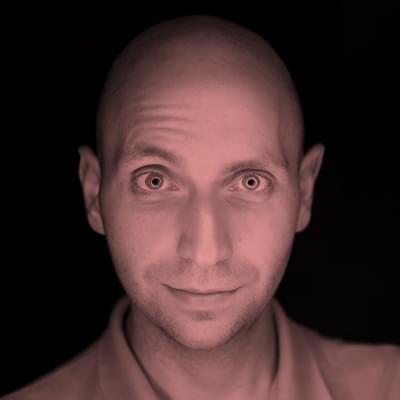
Vitaly Friedman
Design KPIs: How To Measure UX And Show Impact of Design
Vitaly loves beautiful content and does not give up easily. Born in Minsk, Belarus, he studied computer science and mathematics in Germany. While writing algebra proofs and preparing for software engineering at nights in the kitchen, at the same time he discovered passion for typography, interface design and writing. After working as a freelance designer and developer for 6 years, he co-founded Smashing Magazine back in 2006, a leading online magazine for designers and developers. His curiosity drove him from interface design to front-end to performance optimization to accessibility and back to user experience over all the years.
Vitaly is the author, co-author and editor of all Smashing books, and a curator of all Smashing Conferences. He currently works as creative lead of Smashing Magazine and front-end/UX consultant in Europe and abroad, working with European Parliament, Haufe-Lexware, Axel-Springer and a few other companies."Design KPIs: How To Measure UX And Show Impact of Design"
Learn how to turn vague business objectives into specific design KPIs that will help you and your team to achieve results.
How do you show the value of your design work? How do you defend your design decisions? How do you measure and visualize the impact of your work on business? As designers, we often excel at designing incredible experiences, yet we fail miserably proving the value of our work to senior stakeholders. Let's change that!
Dive deep into Design KPIs, UX metrics, Design KPI trees and the tools to bridge the gap between design work and tangible impact. In this session, senior UX consultant of the European Parliament and creative lead of Smashing Magazine Vitaly Friedman will talk about how to navigate the intricate interplay between design, user experience, and measurable business outcomes.- On the web https://smashingmagazine.com
- On Mastodon @vitalyf@mastodon.be
- On X (formerly Twitter) @vitalyf
- Coverage Video on TouTube

Jeremy Keith
Of Time And The Web
Jeremy Keith lives in Brighton, England where he makes websites with the splendid design agency Clearleft. You may know him from such books as DOM Scripting, Bulletproof Ajax, HTML5 For Web Designers, Resilient Web Design, and, most recently, Going Offline.
He curated the dConstruct conference for a number of years as well as Brighton SF, and he organised the world's first Science Hack Day. He also made the website Huffduffer to allow people to make podcasts of found sounds—it's like Instapaper for audio files.
Hailing from Erin's green shores, Jeremy maintains his link to Irish traditional music running the community site The Session. He also indulges a darker side of his bouzouki-playing in the band Salter Cane.
Jeremy spends most of his time goofing off on the internet, documenting his time-wasting on adactio.com, where he has been writing for over fifteen years."Of Time And The Web"
Ours is a fast-moving industry. We measure our work in tickets, sprints, and projects. But that can make it hard to see the bigger picture sometimes. In this talk we’ll attempt to pull back and measure our progress in terms of decades. We might even attempt to gaze into the future…
- On the web https://adactio.com
- On Mastodon @adactio@mastodon.social
- On X (formerly Twitter) @adactio
- Coverage Video on TouTube

Maya Leyh
border:real
Maya, a 15-year-old high school student at a gymnasium from Nuremberg, Germany. Her journey into the world of technology started at an early age when she joined CoderDojo Nürnberg, a coding club for kids.
At just 8 years old, she held the opening speech for the Web Week 2017 in Nuremberg and had her own event where she demonstrated & showed her knowledge about fake news propagation on the internet at the Fake News Night. Around the age of 10, she became a mentor at the CoderDojo, guiding other young enthusiasts along their tech adventure.
Maya's personality shines through in her love for travel and photography. These two passions provide her with inspiration and creativity, complementing her technical skills.
Maya's journey is just beginning, and her potential is promising. She's a young creative from Nuremberg, defining her path in her own unique way."border:real"
I am pleased to share with you a few moments about me and my coming of age in this rapidly evolving days. Even if you are an adult, you may be able to identify with some of the new challenges that we — in particular today’s youth — are facing.
- On Instagram @mayahatsdrauf
- Coverage Video on TouTube

Andre Jay Meissner
All Monsters Are Human
Jay is working at the intersection of business, design, and technology, focusing on human-machine interaction and building and growing solid teams, tenacious communities, and products that improve the human condition. He is a father of three, a co-leader of IxDA Berlin, and has founded and chaired World Interaction Design Day (IxDD).
"All Monsters Are Human"
How have you, the industry, society, and the world transformed in the past ten years?
How did your actions transform the industry, society, and the world?
Imagine you were to change how society, industry, the world, and yourself affected each other in this past decade. What has been so difficult about getting that right in the first place?
Demons are a very human creation. You look for ways to explain evil, and instead of seeing it in yourselves, you offload the responsibility onto monsters.
Let's check in on monsters. Let's talk about purpose, focus, and sanity.- On Bluesky klickass
- On LinkedIn andrejaymeissner
- Coverage Video on TouTube
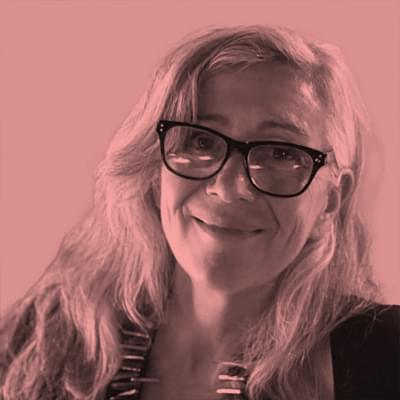
Piccia Neri
Thank God it's not 2013
Piccia Neri is a UX and accessible design lead, consultant and speaker, empowering businesses and agencies to win on the web by putting users at the centre. She loves educating designers and developers in the best UX, UI and accessibility practices via workshops, courses, and talks, in 3 languages. Piccia’s current main focus is on balancing creativity and accessibility, without sacrificing either.
- On the web https://piccianeri.com/
- On LinkedIn piccia-neri
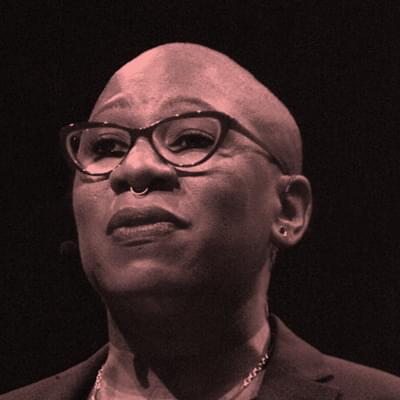
Adah Parris
Less Afraid: A Decade of Transformation and Creative Evolution
Adah Parris is a highly sought-after keynote speaker and a visionary in the fields of technology, ecology, innovation, and art. With her unique blend of expertise, she challenges conventional thinking and inspires individuals and organisations to embrace new ways of thinking and doing. Adah's cutting-edge philosophy, Cyborg Shamanism™, merges ancient wisdom, living systems and digital technologies to provide a framework for a more sustainable future. Her Ancestors Retreats empower individuals to achieve personal growth and bridge the gap between where they are and where they want to be. Adah works with leading organisations to drive innovation, foster deeper connections, and leave a positive legacy for future generations.
"Less Afraid: A Decade of Transformation and Creative Evolution"
In this talk, I'll guide you through my remarkable 10-year transformation from a budding futurist into a trans-disciplinary artist, experience designer, and thought leader. Inspired by the wisdom of Black feminist writer Audre Lorde – 'When I dare to be powerful, to use my strength in the service of my vision, then it becomes less and less important whether I am afraid' – I'll share my journey of evolution and empowerment.
- On the web https://www.adahparris.com/
- On Instagram @adahparris
- On LinkedIn adahparris
- Coverage Video on TouTube
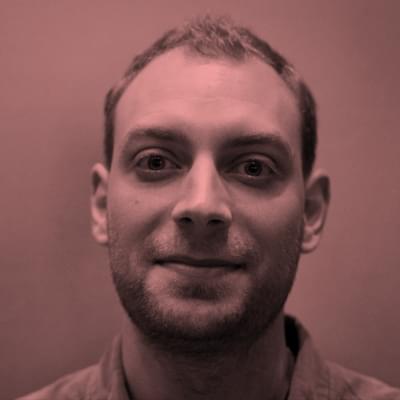
Rodney Rehm
FOR-DEC
Rod is a "UI architect" at Deutsche Telekom, where he's working on the SmartHome consumer products. Trying to connect, control and automate the Telekom products in people's living rooms. Five years ago he shifted from web development to mobile apps.
"FOR-DEC"
Turning my work / work balance into a work / life pendulum.
- On the web https://rodneyrehm.de/en/
- On Mastodon @rodneyrehm@mastodon.social
- On X (formerly Twitter) @rodneyrehm
- Coverage Video on TouTube
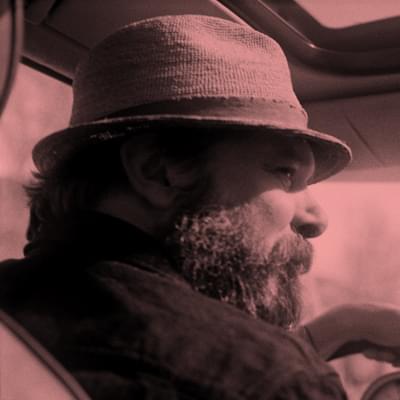
Vasilis van Gemert
Do we have to reinvent the wheel?
Vasilis is a lecturer at the Amsterdam University of Applied Sciences. Here he teaches the next generation of digital product designers about the web. He believes that universities should research important topics that “the industry” tends to ignore. That’s why he teaches mostly about desiging for accessibility (and about CSS, which can use more love as well).
"Do we have to reinvent the wheel?"
Ten years ago I looked at other industries for inspiration. This time I’ll take an inwards look at our own industry and I’ll wonder out loud if the wheels we’ve been using for the past ten years are really wheel-shaped. Or have we been trying to ride on rectangles?
- On the web https://vasilis.nl
- On Mastodon @vasilis@social.vasilis.nl
- Coverage Video on TouTube
The organizers (and a bit of background)
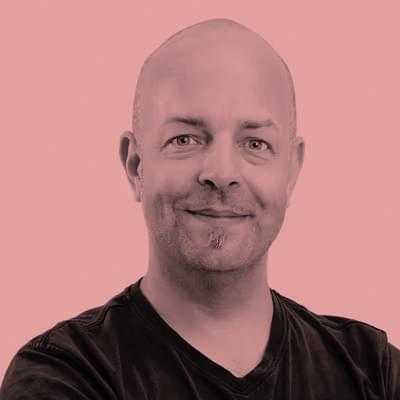
Joschi Kuphal
- On the web https://jkphl.is
- On Mastodon @jkphl@mastodon.social
- On Twitter @jkphl

Marc Thiele
- On the web https://marcthiele.com
- On Mastodon @marcthiele@mastodon.social
- On Twitter @marcthiele
Joschi first saw Marc on stage at his beyond tellerrand conference in Düsseldorf in May 2013. For Joschi it was his first conference visit ever. Deeply grateful for the experience, he contacted Marc a few days later. Both were involved in the Open Device Lab community at the time, and so the two decided to organize a meetup for ODL administrators together. To draw more attention to the meetup, Marc suggested organizing a "mini-conference" as an appetizer beforehand: The idea of border:none was born.
With only 2 months to plan, prepare and sell tickets, the two embarked on the adventure together — without ever having spoken face to face until the evening before the conference! How crazy would you have to be to be able to spontaneously lure ~200 participants to a brand new, completely unknown conference in the event no-man's land of Nuremberg (where Joschi is based)?
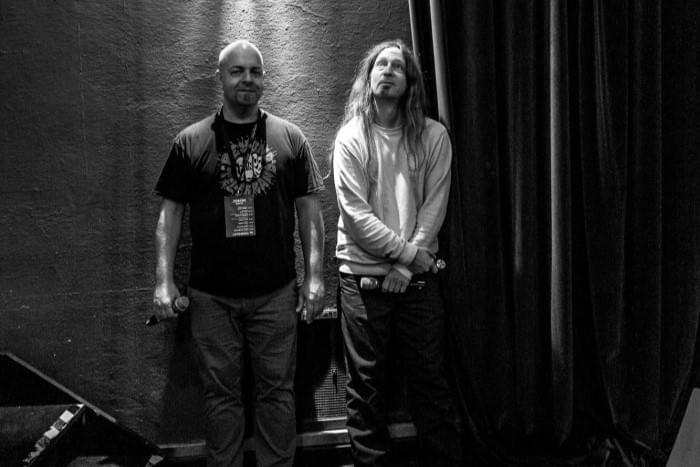
border:none 2013 became a huge success. Run as a non-profit event for only € 30 per person and embedded in the Nuremberg Web Week (aka Nuremberg Digital Festival), the tickets were sold out after only 2 weeks. Joschi and Marc received overwhelming encouragement, were supported without hesitation by 7 fantastic speakers and equally committed sponsors, and were still being badgered on the conference evening to make border:none a regular event. Such success was only made possible by the great community that gave the crazy project a chance and followed Joschi and Marc's call to Nuremberg.
Everyone who was there remembers border:none 2013 as an extraordinary event. And so it happens that Joschi and Marc — after 10 years of joking "We should actually do that again one day!" — really wanted to try again. So many things have happened in these 10 years: In our industry, in our lives, in our world. So why not re-invite the same speakers from back then, to the same place, and get their perspective on that time gone by, and on the future?
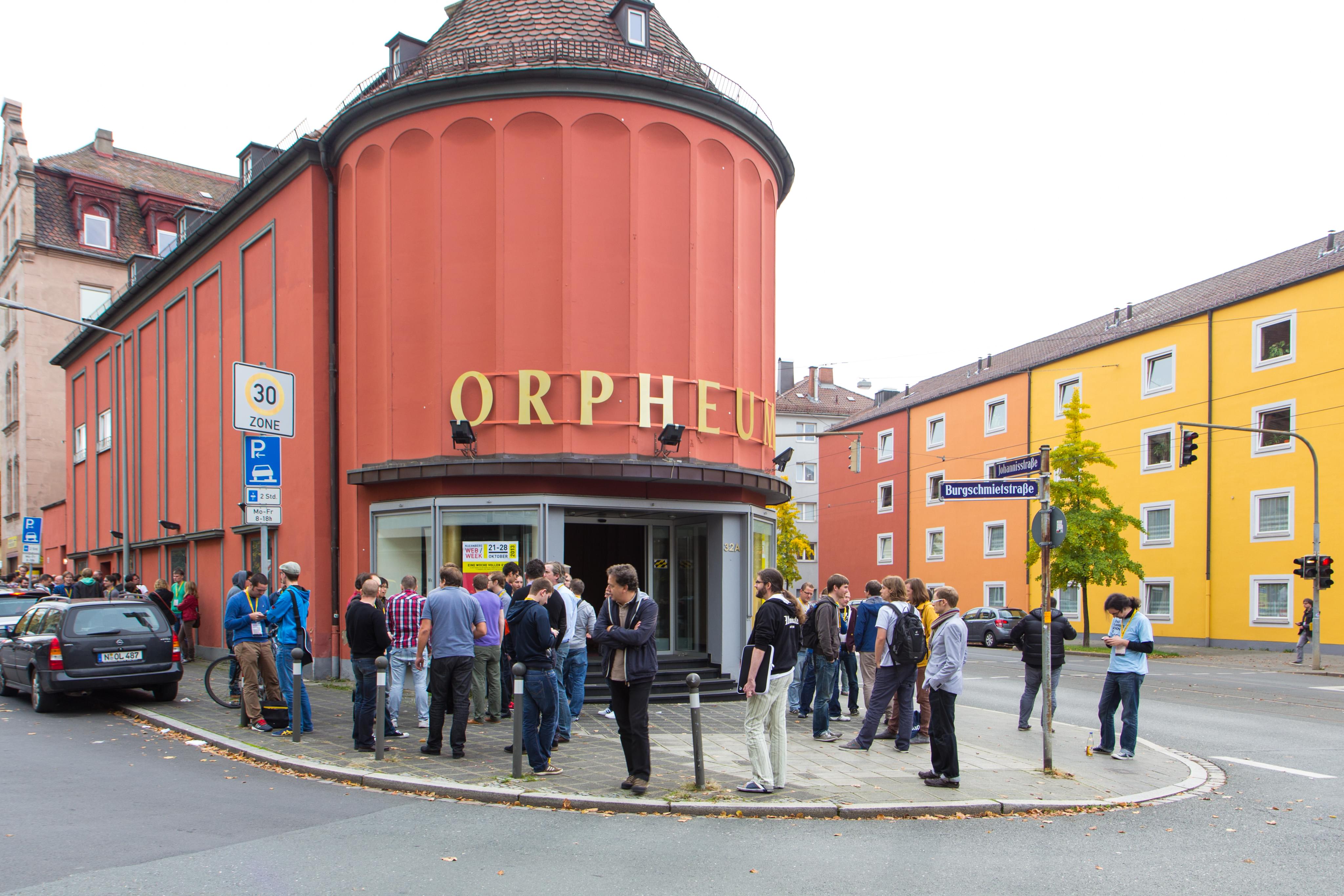
Location
The venue: Orpheum-Lichtspielhaus
The historical Orpheum was built in 1910 as a glamorous cinema in the St. Johannis district of Nuremberg. Heavily damaged in the second world war, it got restored and re-opened in 1948. The triumphant advance of television sets forced the cinema to cease operation in the 60s. Since then, it has been a supermarket most of the time, finally ending up as a ruin in the late 90s. After being restored in 2010, again, it has been sporadically used as an event location. Since immediately after our border:none 2013 mini-conference, the Orpheum has served as a permanent venue for regular music events.
Sponsors
Thank you so much for your generous support 🙏🏽
insertEFFECT is a leading provider of excellent software solutions for sustainability and mobility. We help our customers prepare for the future by developing digital solutions that are greener, more contemporary and more equitable. We are proud to be a sponsor of this year’s border:none.
With CAAT we simplify testing for accessibility.Test efficiently with step-by-step guidance according to your chosen guideline.Create a test report or export with a single click.CAAT is developed by mindscreen.We have been specialists in digital accessibility for 20 years.We have created an accessible and comprehensive tool for our daily work and for everyone who cares about accessibility.
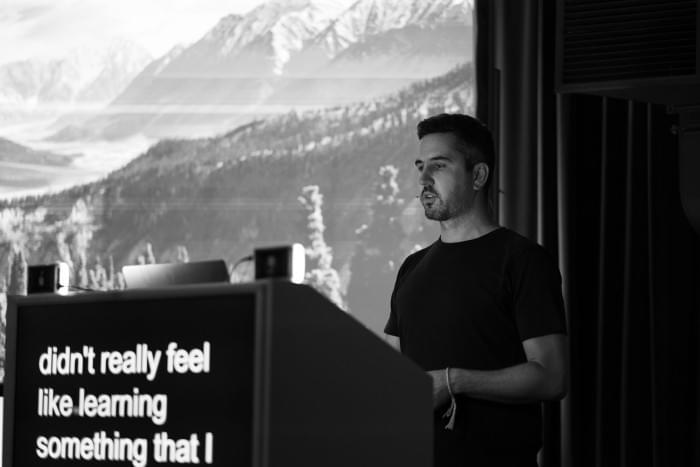
![Tobias Baldauf: [mɑːkt]](/2023/img/tobias_c_jolanta_dworczyk.jpg)
